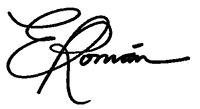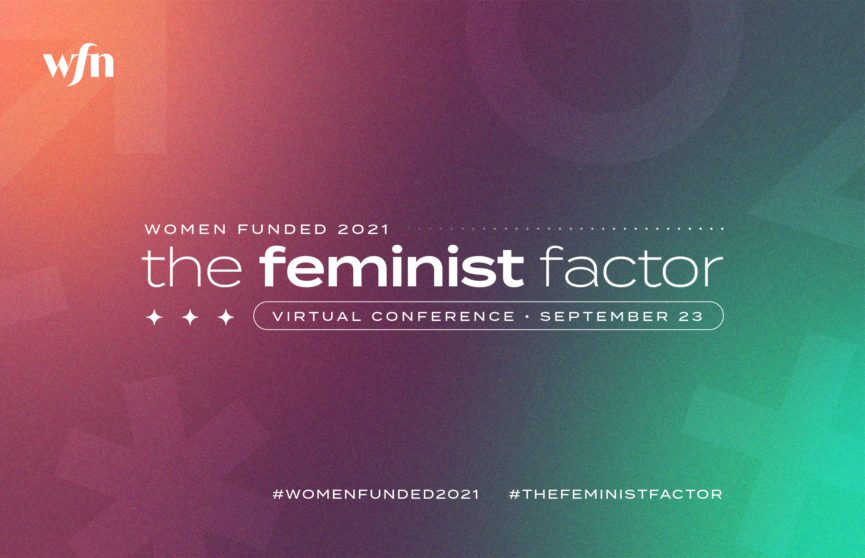I am delighted to welcome you to Women Funded 2021, the biennial conference co-convened by the Women’s Funding Network membership and made possible through the support of our generous sponsors.
As many of you know, the Women’s Funding Network is the largest philanthropic alliance in the world made up of women’s funds, foundations, and gender justice funders who are working to create a safer, more just, and equitable world for all of us.
We’re over 120 members strong, with over $450 million in annual grantmaking a year, with a global reach with members and attendees in 11 countries from North and South America, Africa, and Europe.
Every other year for over 20 years, we’ve convened as colleagues to share what’s working, what’s still challenging, explore funding strategies, and ignite opportunities for cross-sector collaboration; leaving not only with concrete action plans, but also with new friends and co-conspirators for the work ahead.
Admittedly, this year, our conference is unlike any other before. We’re still shaking loose from the grips of a global pandemic. We’re not together in person; we’re fatigued, we’re grieving, and we’re continuing to absorb the unrelenting sadness and pain from the world around us.
We want more than ever to connect. To revive. To live again in a world where we’re wearing shoes to meetings and complaining about Susan from HR taking our yogurt.
Well, maybe we can do without the politics of the office break room.
The point is, the world is more different today than it has ever been since WFN started convening conferences. And we only have a few precious hours together to make sure that no matter how sick of Zoom you are, you’re tuned in and looking forward to Every. Single. Minute.
That’s why I’d like to introduce this year’s theme with a story. My story.
The daughter of Mexican immigrants, I was born and raised in the U.S. in a majority White-American state of Nebraska.
And while I’ll say that most of the people I grew up with were polite and neighborly Mid-Westerners – I was also only five when a white woman threatened to call the police on me for accidentally walking into her house. And I was 17 when my uncle – who didn’t understand English – was misidentified and beaten to death by a white female police officer and her partner.
Like many of my fellow colleagues from marginalized genders in communities of color, I unfortunately have hundreds of these stories.
Audre Lorde once said,
“I was going to die, if not sooner than later, whether or not I had ever spoken myself. My silences had not protected me. Your silence will not protect you.
What are the words you do not have yet? What do you need to say? What are the tyrannies you swallow day by day and attempt to make your own, until you will sicken and die of them, still in silence? We have been socialized to respect fear more than our own need for language.”
an excerpt of Audre Lorde’s essay in “Sister Outsiders: Essays and Speeches” published in 1984.
This year’s conference theme, The Feminist Factor, is an opportunity to have a new and expansive conversation about the critical frameworks that guide and distinguish much of our collective work.
As we face the layered challenges of racism, sexism, health disparities, a global pandemic, climate change, institutional violence, and autocratic threats to democracy, it is ever more essential that we grapple with both our painful and joyous feminist movement history.
Feminism, rooted in our interconnected liberation, is our strength and our challenge.
Together, we can forge a movement that can withstand the current and upcoming tests. Together, we can continue shaping a more just and equitable future for all of us. I am proud to be by your side.
As we celebrate our history, we must also look forward to how feminism can continue to grow its intersectional and inclusive principals and keep moving towards a new concept of equality that provides justice, safety, and opportunities for all of us.
Across COVID-19 response plans and recovery efforts, marginalized genders in communities of color have led the way.
They have consistently championed and deployed three approaches to philanthropy that are driving a sustained systemic change for all of us:
- Pooled funding for maximized impact and minimized risk,
- A democratic, shared approach to governance and resource deployment
- Enabling locally led, context-specific solutions
I’m proud to say that together, our alliance strives to embody these principles. As funds and foundations that center the unique needs of women and girls, we have an opportunity to remake the system that has been broken for so long — but only if we center those we seek to advance at the very heart of the decision-making. It is fundamental that we incorporate local voices and local solutions into the very structure we seek to build. Only then can we make long-lasting, structural change.
Each of us have the power. Vote for women, and women of color representatives that will champion community-based solutions. Give generously to organizations on the frontline of change, including to your local women’s fund or foundation.
Women’s funds are system change institutions that multiply every size gift by primarily supporting women of color-led organizations that are mapping an inclusive economy built on racial and gender equity and justice.
There is only one antidote to the poison of silence and inaction. Find your feet. Stand up. Stand with us. Together, we fight. Together we win.
In solidarity,

Elizabeth Barajas-Román
Women’s Funding Network
President & CEO
